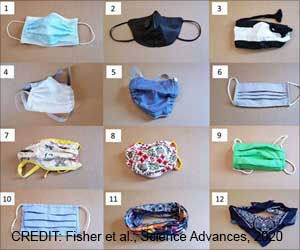Medindia in the News...
Science Express, 7 July 1998
Dr.Sunil Shroff
Advertisement
Many health organizations and medical specialty groups have hooked themselves to the Internet and established their own websites.
Patients have been one step ahead of the doctors in using the Internet. They were the first to set up self-help and support groups, chat groups and provide online free access to information about various disease on the web.
Search engines like AltaVista and Yahoo! are the best to use for medical sites. They provide a complete 'health information' category.
The most important use of the Internet for patients and the public is education about various health issues. A patient often walks out of a doctor's consultation room baffled and bewildered about an ailment. This confusion could be either due to disinterest or poor communication skills of a medical practitioner.
However, it is because of time constraints that a practitioner is not able to explain the nitty-gritty of the disease or symptoms to his patient. This is what prompted some in the medical field to provide 'patient information ' in the form of small booklets and leaflets on various medical topics. However, the Internet
provides a perfect universal platform to disseminate this information instantly without incurring the cost of printing stationery or distribution.
Patient Information Sites
Patient information on most of the common medical conditions are available on the net. In fact, there are so many sites for each condition that visiting more than one site can actually confuse a patient. So, one needs to know the source of some of the standard medical sites. Some examples of what is available on the net are:
Information on urinary tract disease www.healthtouch.com. For some unknown reason, many suffer from kidney stones especially in the age 20-40 age group.
Information on Prostate Cancer
www.comed.com/prostate In the West, with an increase in geriatric population, there has been an increase in the incidence of prostate cancer. This site contains all the information a patient requires.
Patient Support Groups
There are many support groups which give information on coping, self help strategies and on making use of the resources available. It helps patients feel that they are not alone. This is well illustrated by bereavement resources sites like http://www.griefrecovery.com. To overcome depression, one can visit www.positivepress.com
. There are also support groups for the disabled and continence societies. Patients can also interact through e-mail or newsgroups (Usenet).
Interactive Internet Platforms
An interactive platform makes a site more attractive to visit. Here are some interesting examples of these platforms:
An interactive site is available for kidney failure patients which can calculate if a person is receiving adequate haemodialysis. All the patients has to do is fill in the essential information and a calculator will tell a patient how adequate the dialysis was at their centre.
Patients with heart disease who wish to have a consultation with a cardiologist in America use one of the inter-active sites such as www.bev.net/health/cardiac/. Another such site is available at http://wuntimes.com/index/devries.html.
where, Dr.Devries, a cardiologist from Chicago answers the questions.
Childcare sites have started booming. Useful information on parenthood and how to take care of your baby are available at www.childbirth.org and www.parenthood.com/.
Internet and Doctors
One could search for data on any medical topic from various databases of universities and college libraries. Medicine is a bibliographic database produced and distributed by the US National Library of Medicine (NLM). This is one of the most prestigious and perhaps, the biggest single medical library in the world which has
the most organized collection of medical information. A physician can search through 9 million citation on medline at the following address :
www.ncbi.nlm.nih.gov/pubmed/. Difficult cases can be discussed with anyone around the world through a e-mail. This service can also be used to subscribe to various free and paid medical news items. Details of national and international conferences are also available on the net.
One can download articles from selected medical journals. For example, the British Medical Journal provides abstracts from selected articles online (www.bmj.com/bmj). The American Medical Association has published the abstracts from the Journal of the American Medical Association online with abstracts from all of the archived publications it maintains www.ama-assn.org.
Interactive case studies and multimedia tutorials are of interest to physicians, surgeons and medical students. The use several media allows education to be demonstrative. This makes it easier to explain complex surgical or medical procedures and principles. Multimedia Medical Reference library will interest physicians interested
in multimedia presentations for teaching and this can be surfed at www.medlibrary.com
Advertisement











